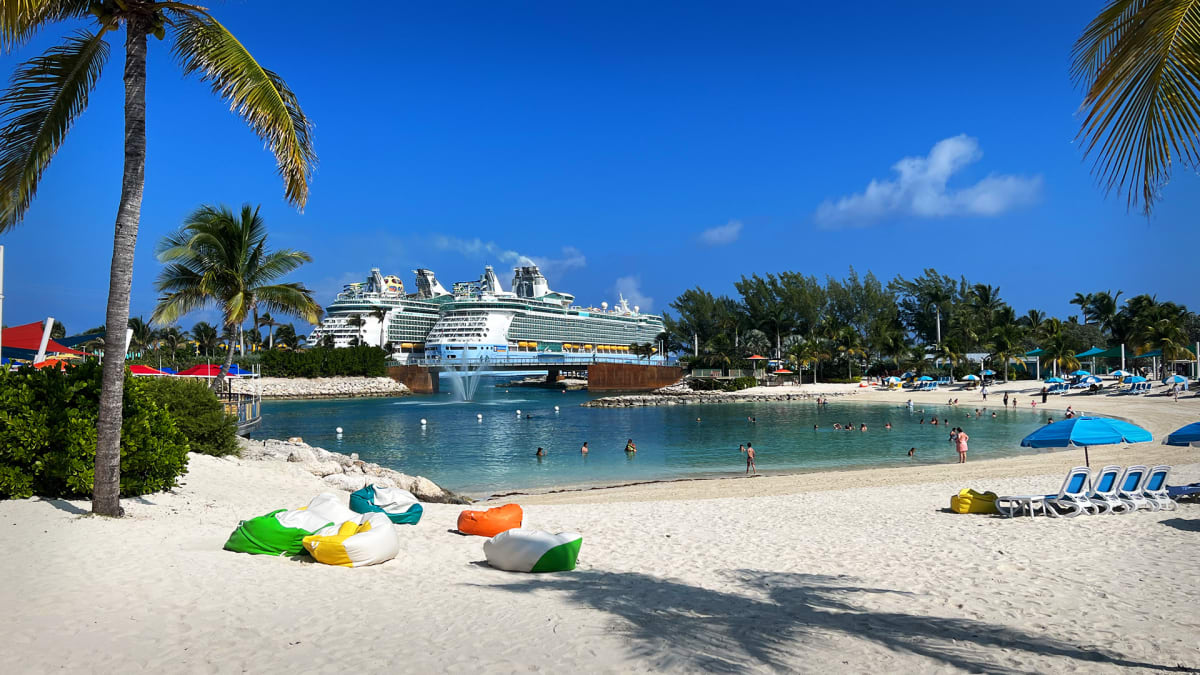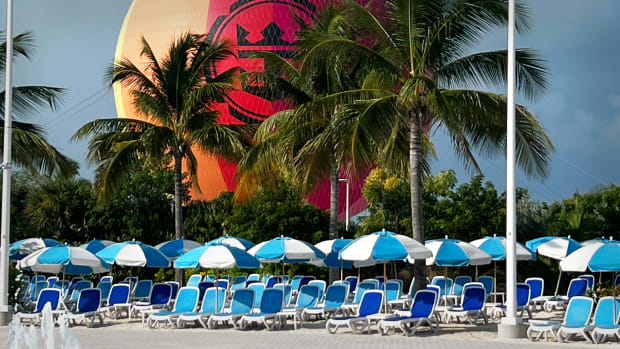
Cruise lines only partially control their pricing. Each port they stop in adds taxes and fees that must be collected from every person on the ship, even if many of those people don't get off in every port.
That's why even a free, or comped, cruise issued by a cruise line's casino still comes with some cost because those taxes and fees, which vary by port, still must be collected. Usually these numbers are small, but they add up.
DON'T MISS: Royal Caribbean and Carnival Struggle With Boarding Policies
Normally, cruise passengers don't think much about these costs, but prices for many cruises have been rising as the covid recovery continues. So any increase might push the total cost above what someone wants to spend.
And that in turn could lead people to choose shorter or cheaper cruises, choosing to forgo add-ons like drink packages or specialty dining, or even not to book a cruise at all.
The cruise lines want to see demand push basic fares higher, but family-oriented lines including Royal Caribbean (RCL) and Carnival Cruise Line (CCL) have remained very conscious of the overall value proposition they offer.
Thus both of those cruise lines pushed back at plans by the Bahamas government to raise a number of fees that affect cruise passengers. That government has listened as it has opted to push the increases back until January.
“The tax does not go into force until January 2024, and that’s been a seven-month notice period," Bahamas Tourism Minister Chester Cooper told The Tribune, a local Bahamas newspaper. "So I don’t have anything else to say at this point except that they are important partners as are all of our stakeholders in the cruise business, but our taxes are essential to build roads and schools and docks and to revitalise Bay Street."

Image source: Daniel Kline/TheStreet
The Bahamas Will Raise Taxes for Cruise Passengers
An increase in taxes in the Bahamas will hit Royal Caribbean and Carnival more than other cruise lines because such a large portion of their fleets call on Nassau and private islands in the Bahamas.
"The Bahamas currently levies an $18 per passenger departure tax, and that tax would rise by about 27%, to $23, for guests whose ships leave from Nassau and Freeport," CruiseHive reported.
In addition, the new legislation will also include a $25 fee (an increase of roughly 38%) for those who depart the country by sea from a private island, without calling at another port in the country.
"Additionally, the bill creates a $5 tourism environment tax and a $2 tourism enhancement tax on cruisers arriving or departing the destination. All told, each cruiser leaving from Nassau and Freeport would be charged $30, while those leaving from a private island would pay $32," the website added.
Royal Caribbean sails short itineraries from Port Canaveral, Fort Lauderdale, and Miami that call on Nassau and its CocoCay private island, which is also in the Bahamas. The cruise line will begin sailing Allure of the Seas, one of its largest ships, from Port Canaveral on three- and four-day trips making those stops.
Carnival has multiple ships sailing similar itineraries, which is why President Christine Duffy led the charge to get the Bahamas to delay the new taxes.
Disney Cruise Lines, MSC, and Norwegian Cruise Line (NCLH) will also benefit from the delays as they sail ships -- sometimes multiple ships -- that call on Nassau, Freeport, and private islands in the Bahamas.







